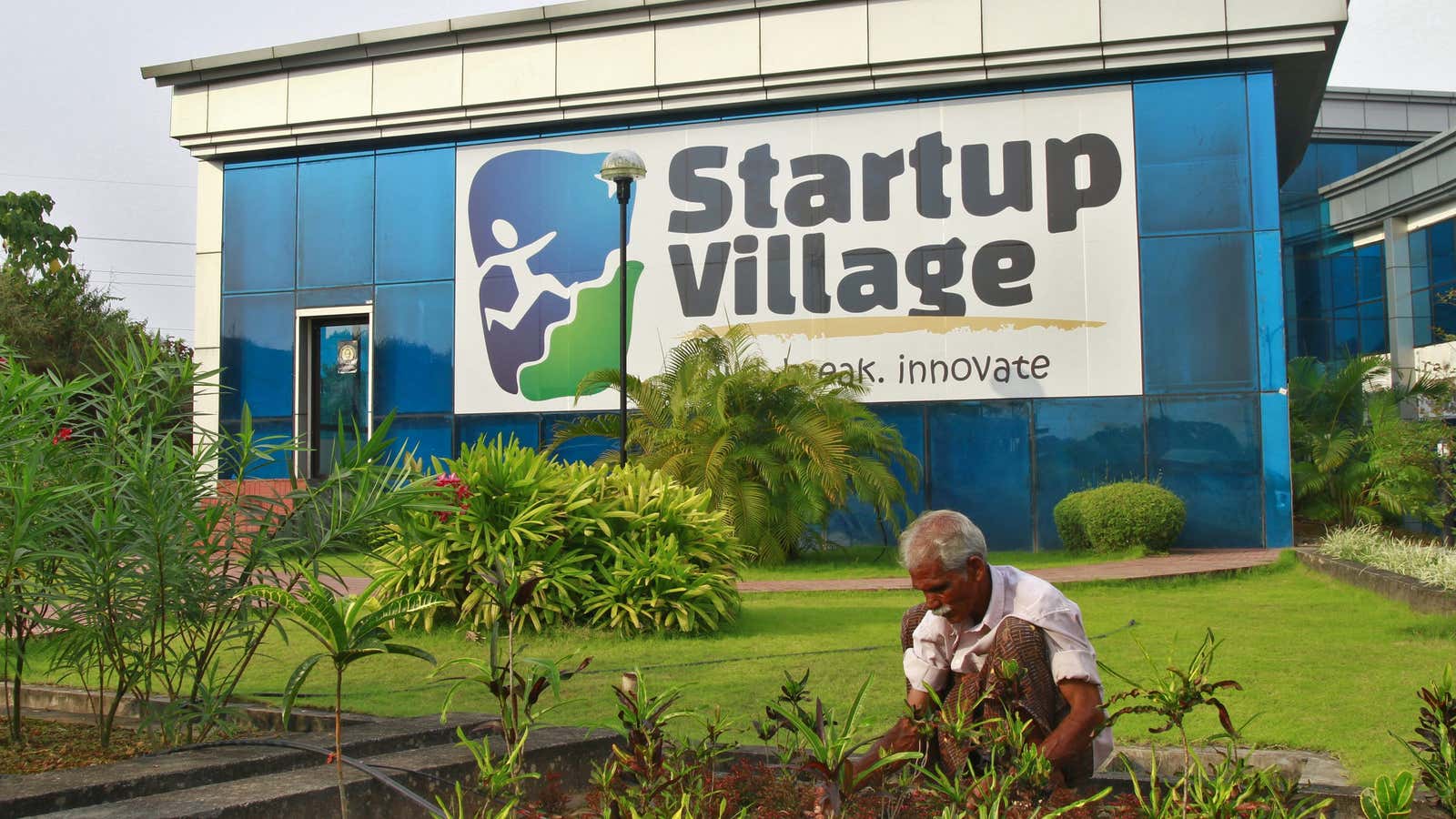I spent the past 15 years in the US in enterprise engineering, product, and venture capital at Advanced Micro Devices (AMD), Google, and Andreessen Horowitz, before returning to India. I’m often asked how India compares to Silicon Valley, the hotbed of enterprise innovation.
Besides the US, I feel world-class enterprise startups will come from India and here’s why.
First, some market truths—more and more unicorns are now found outside of the US. Primary reason: internet penetration.
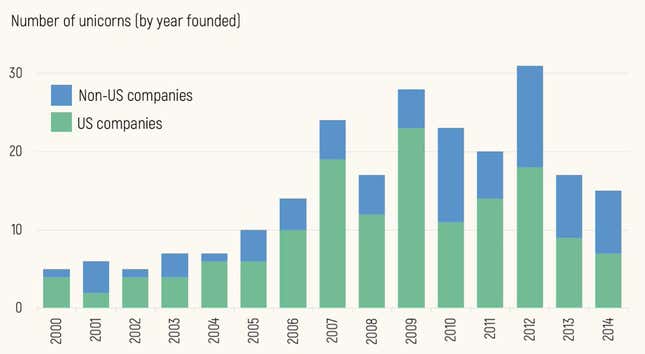
A strong correlation exists between internet availability and affordability to large pools of value creation. The story that played out in the US and China between 2000 and 2018 is starting to play out in India now.
But aren’t these mostly business-to-consumer (B2C) companies like Google and Facebook?
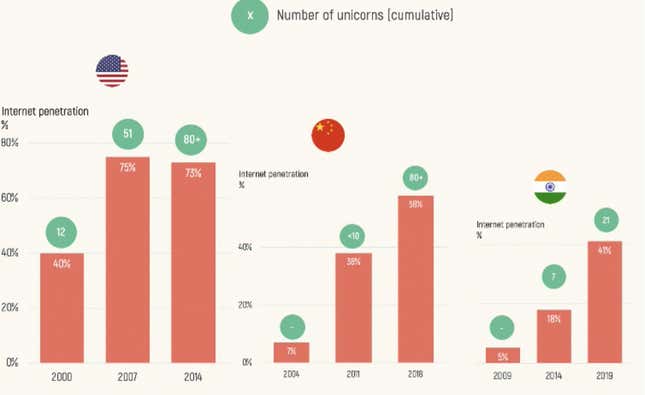
Internet penetration has benefited B2C but has a second-order impact on business-to-business (B2B) firms. For every Dropbox or FaceTime, there’s also a Box or Zoom using digital tools to build, test, and launch at breakneck speeds and then in “consumerish ways” brands, sells, and monetises enterprises.
Developer is the new buyer
Think fewer site-wide MSDN (Microsoft developer network) or RHEL (Red Hat enterprise linux) licences, more personal/team-wide Github/Slack/digitalOcean accounts. Corporate IT spend will disaggregate and many top-down decisions will become bottom-up where individual “consumers” need to be influenced.
Founders with a developer-first mindset will win big globally and Indian founders have a unique advantage here: our developer ecosystem is one of the most vibrant in the world. We are curious, engaged, and hungry to learn. Being a techie in India isn’t “geeky” or “nerdy.” It’s cool, fashionable even.
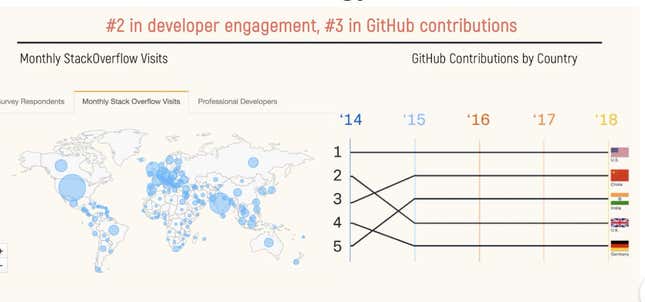
But wait a minute. Isn’t India the call center and business process outsourcing (BPO) capital of the world? You would be right…15 or 20 years ago.
If you’ve been following the India story since the late 90s, the top students from IITs were going into BPO/Knowledge Process Outsourcing (KPO) roles at firms like Infosys, EvalueServe, and so on. By the late 2000s, India had started to shift squarely to products with companies such as InMobi and Exotel paving the way.
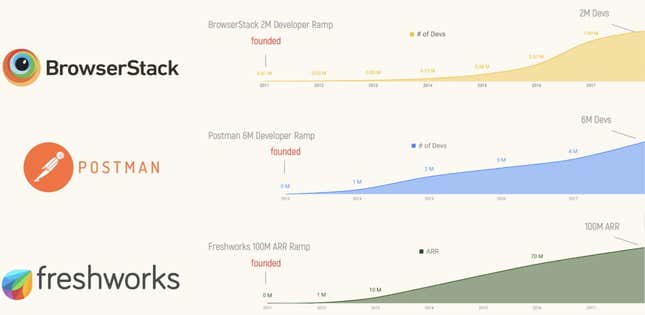
And now India is very focussed on software-as-a-service (SaaS), built and delivered on the cloud.
And not just that, our enterprise solutions have gone global from humble beginnings in Bengaluru, Mumbai, Chennai, etc. For example, Postman just raised a massive $300 million round with huge developer adoption. Browserstack has seen fantastic growth, and Freshworks hit $100 million annual recurring revenue average recurring revenue (ARR) last year, public sources reported.
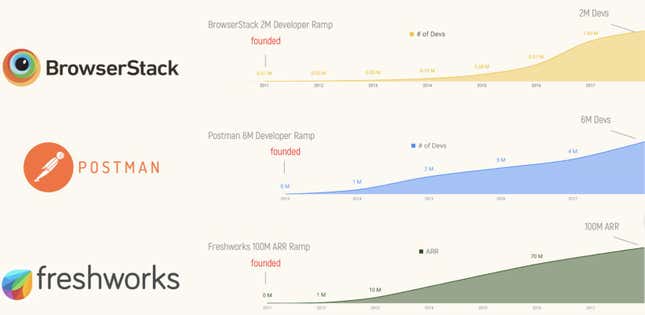
By itself, India is now the second-largest public cloud buyer in the Asia-Pacific region at around 50% of China, and it’s growing faster. Compared to China, the Indian buyer is hungrier and doesn’t care for brand or roadmap—ideal for startups—and is more top-line focused, trying to get more process-driven to scale.
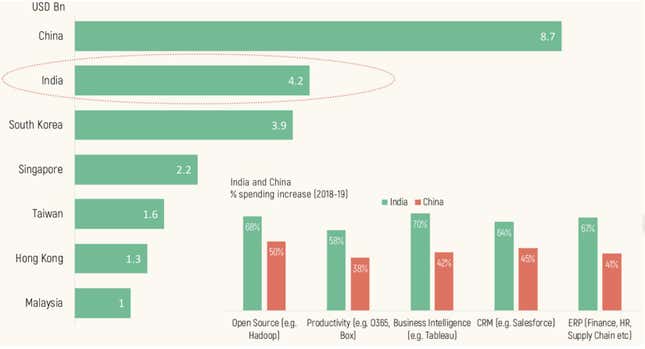
There’s a lot of headroom yet to grow because of the $90 billion of IT spend overall, much of it is in devices and services that are bound to get eaten by software in coming years—which is where, as you would expect, most of the growth is coming from. (Note: this is just the public cloud consumption data; private clouds may be multiples.)
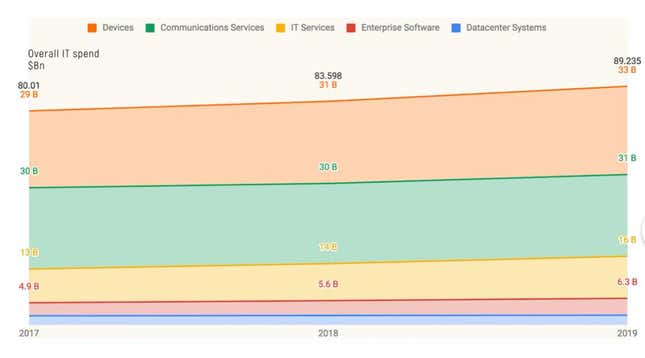
India-to-everywhere
While India-to-US has been tried successfully before, India now has the potential to be the enterprise/SaaS hub for local and southeast Asia markets. Why?
China’s enterprise companies are either hardware-focused or serve local markets. Meanwhile, the rest of southeast Asia has strong cultural, language and use-case alignment with India given the history and development stage (gig-based, migrant population, etc). Does something work in India? It can work there as well.
And to support all this value creation, the key pieces are coming together nicely. A vast majority of founders now have prior startup experience—this is where many of the smartest people are headed—not banking, consulting, or Google and Facebook.
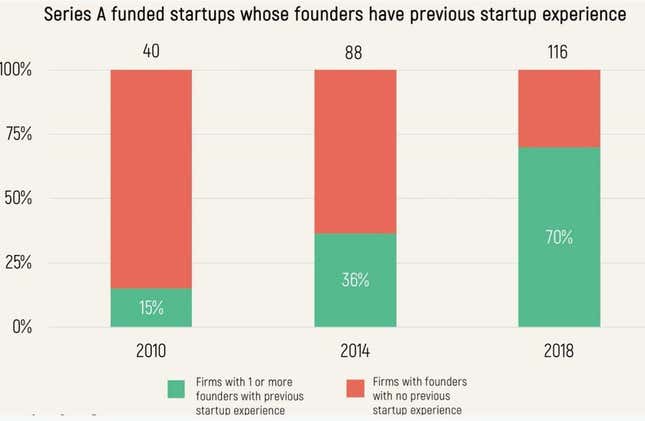
Governmental reforms across taxation, ease of doing business, payments, and updated bankruptcy codes are providing additional tailwinds and making it easier for founders to take more risks and fail gracefully.
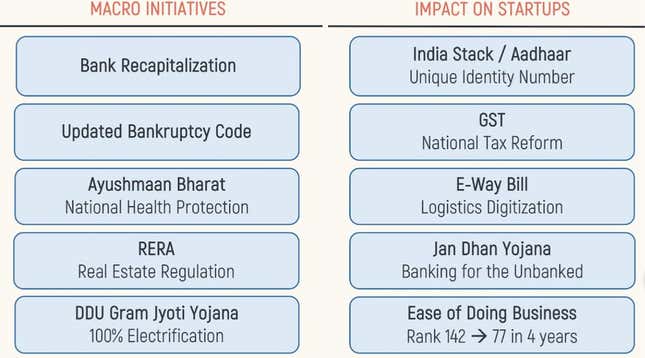
Results? Large companies are picking India as their first international market, while Indian companies are going global both in both the consumer and the enterprise space. Take for instance, Lightspeed India, Portcos, Innovaccer’s foray into the US, Oyo Rooms expanding to China, US, and other markets. Firms like Darwinbox and Yellow Messenger are getting inbounds from southeast Asia.
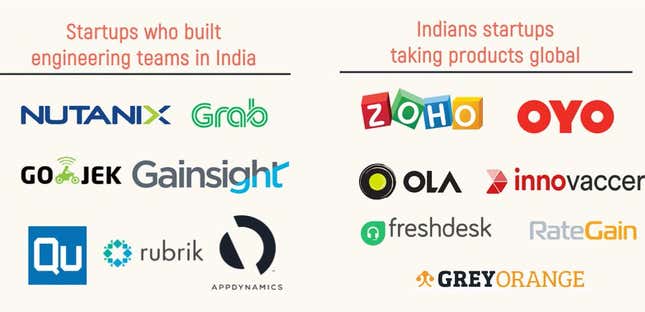
Indian enterprise founders have tasted blood. They are hungry, experimental, and live and breathe tech.
The next 10 years in India are going to be really exciting for enterprise founders.
Lightspeed is an early-stage investor in many of the above companies and we continue to back bold, ambitious founders who are building for the world from India. We also invest in the ecosystem through innovative programs like Extreme Entrepreneurs (ee.lsvp.com) which is a once a year six-eight week fast-paced intense boot-camp for pre-series-A startups to learn from the best in the business. If you are or any founders you know fit the bill, please direct them to submit.lsip.com.
